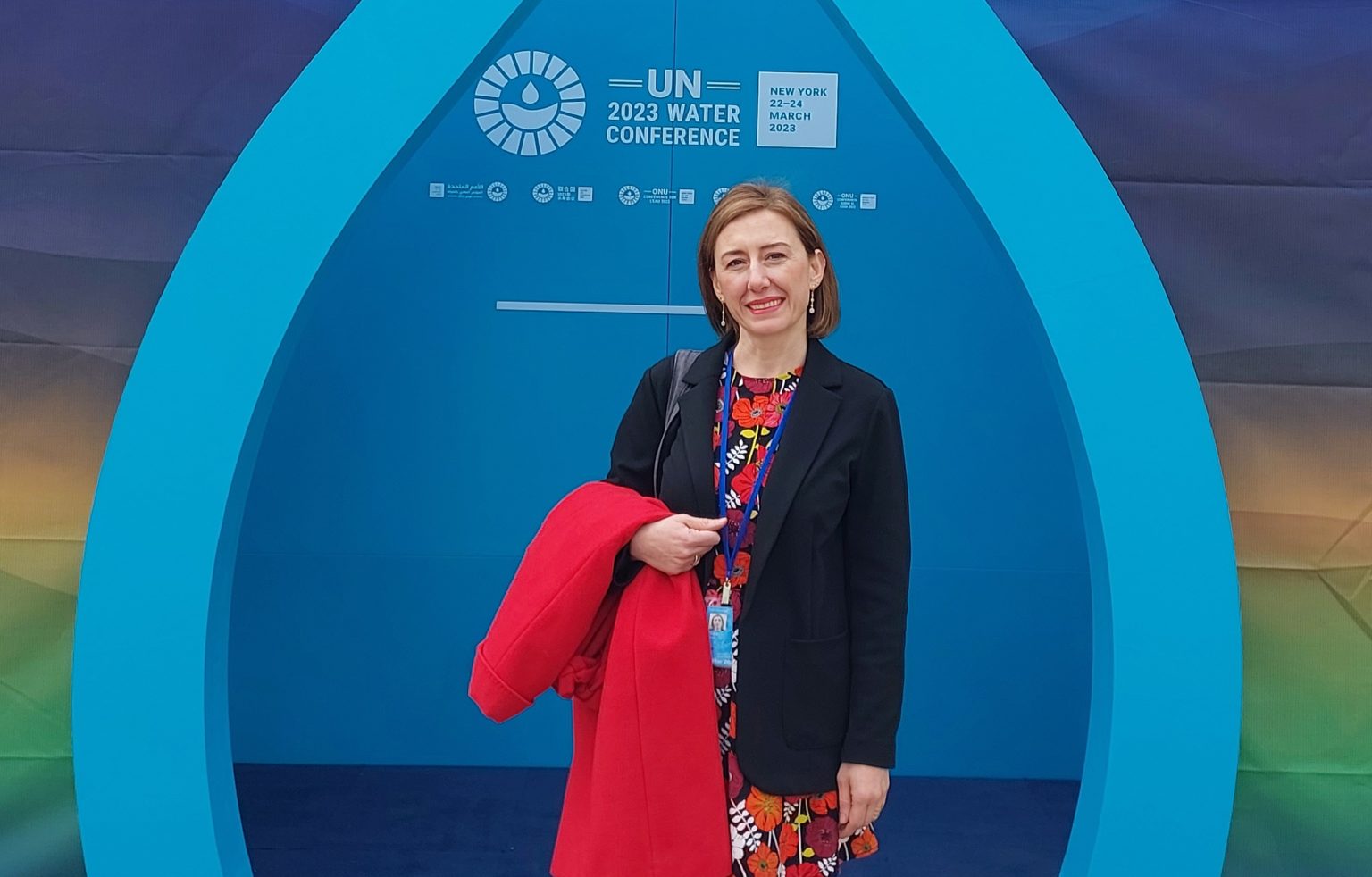Global Young Academy member Stella Tsani (University of Ioannina, Greece) participated in the United Nations 2023 Water Conference as part of the International Science Council Delegation and Community at the conference. Stella contributed to the Policy Brief: UN 2023 Water Conference prepared ahead of the conference alongside an interdisciplinary team of international experts.* Moreover, she actively participated in the preparation of the International Science Council statements at the UN 2023 Water Conference and floor interventions in the different special events to the conference. Specific to the open dialogue of the Global Commission on the Economics of Water (GCEW) for the final GCEW report in 2024 Stella noted the following:
-Strong integration between the natural and social sciences as well as technology is necessary to provide holistic, independent, and evidence-based advisory support to water action. Integrated science-to-action, supported by strong innovation, should be put at the service of developing, reshaping, and establishing more sustainable economies, markets as well as governance and management of water. For a timely addressing of known and anticipated water challenges, including socio-economic issues, it is required a wider science-policy interface, with wide membership across disciplines and stakeholders, and strong development of innovative funding mechanisms for accelerating water-related investments. In doing so, a core target to keep in mind is non-commodification of water. At the centre of water economics should be the conceptualization, identification, monetization, and just allocation of the socio-economic, environmental and technology costs and benefits related to water. Emphasis should be also put on the identification and understanding of the capital, technology and socio-economic discrepancies that impede science-based approaches to water issues, and the development of tailored propositions to address these barriers across regions and countries.
-Fundamental financial shifts are required for meaningful change to water management and governance, including the internalization of environmental “externalities.” Addressing water issues necessitates the mobilization of substantial long-term investment capital that has often to be directed in investments that have a much higher social than private impact. In a period of anemic global economic growth and fragile financial markets, there is a limit to how much of the required long-term investment capital will come from private investors, especially for investments in developing countries with thin financial markets. By contrast, large institutional investors, and public investments, may offer financing alternatives for projects with high social value added. In support of this, investment assessment and allocation tools should be developed which explicitly include the socio-economic and environmental impacts of projects financed and go well beyond the mere financial returns.
* GYA member Ovie Edegbene (Federal University of Health Sciences, Nigeria) and GYA alumni Lahcen El Youssfi (The National Higher School of Chemistry, Morocco), and Shabana Khan (School of Planning and Architecture, India) also participated in the expert group that drafted the International Science Council policy brief in advance of the 2023 UN Water Conference.

